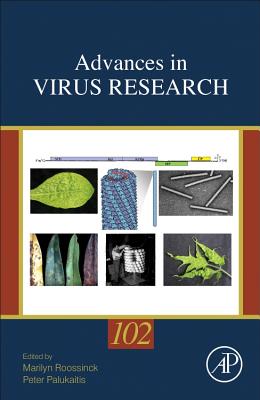

 Academic Press
Academic Press
Advances in Virus Research: Volume 102


Key Metrics
- Marilyn J Roossinck
- Academic Press
- Hardcover
- 9780128151945
- 9.02 X 5.98 X 0.56 inches
- 1.07 pounds
- Science > Life Sciences - Microbiology
- English
 Secure Transaction
Secure TransactionBook Description
Advances in Virus Research, Volume 102, the latest release in this esteemed series, contains new, informative updates on the topic. First published in 1953, this series covers a diverse range of in-depth reviews, providing a valuable overview of the current field of virology. Updates to this release includes sections on the
Development of model systems for plant rhabdovirus research, Dichorhaviruses and their mite vectors, Molecular modelling for better understanding Cucumovirus pathology, Modification of host-insect reactions by viruses, Gene Gangs of the Chloroviruses: Conserved Co-linear Monocistronic Gene Sets, Virus disease control by transgenic approach and attenuated virus, Virus effectors, Tobamovirus evolution, and more.
Author Bio
Marilyn J Roossinck is Professor Emeritus of the Penn State College of Agricultural Sciences and he research focused on covering adaptation of extreme environments with microbes and virus ecology.
She lives in Bellefonte, Pennsylvania.
Research Interests
Our focus in the Roossinck lab is on virus-plant and virus-fungus-plant interactions in virus evolution and ecology.
We use Cucumber mosaic virus (CMV) as a model virus for experimental evolution studies, including generation and maintenance of quasispecies, rates of recombination, and polymerase fidelity.
We are interested in how plants use viruses in adaptation to extreme environments. Fungal viruses are involved in plants adapting to geothermal soils in Yellowstone National Park, and acute plant viruses confer drought and cold tolerance to plants. We are studying the mechanisms of these interactions.
We are interested in the biodiversity of plant viruses. We are studying viruses in wild plants in Costa Rica using next-gen sequence analysis of viral RNA from individual plants. To date we have collected about 14,000 plants and have analyzed about half of them.
Education
- Ph.D., University of Colorado School of Medicine
Source: Penn State College of Agricultural Sciences
Videos
No Videos
Community reviews
Write a ReviewNo Community reviews